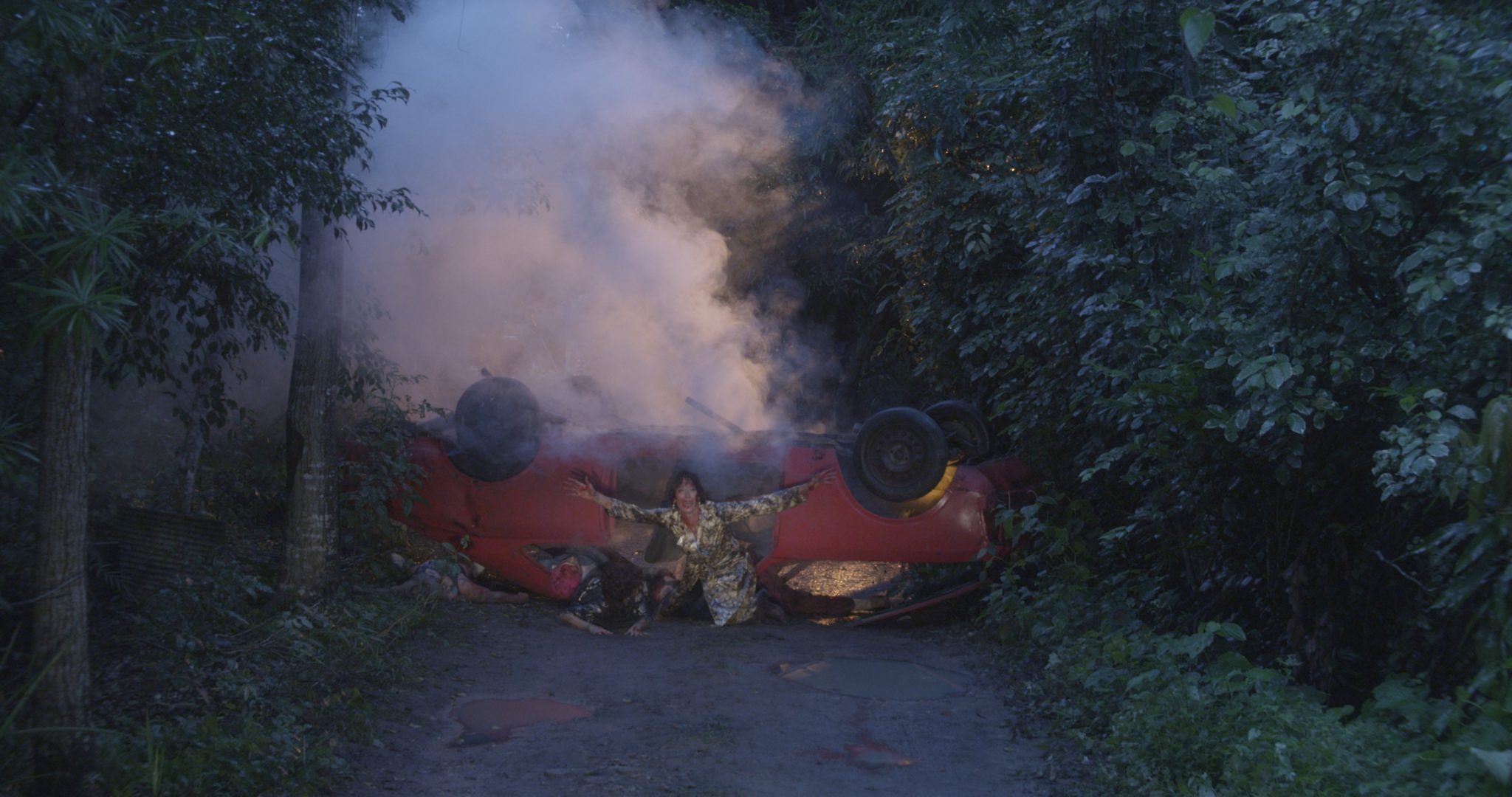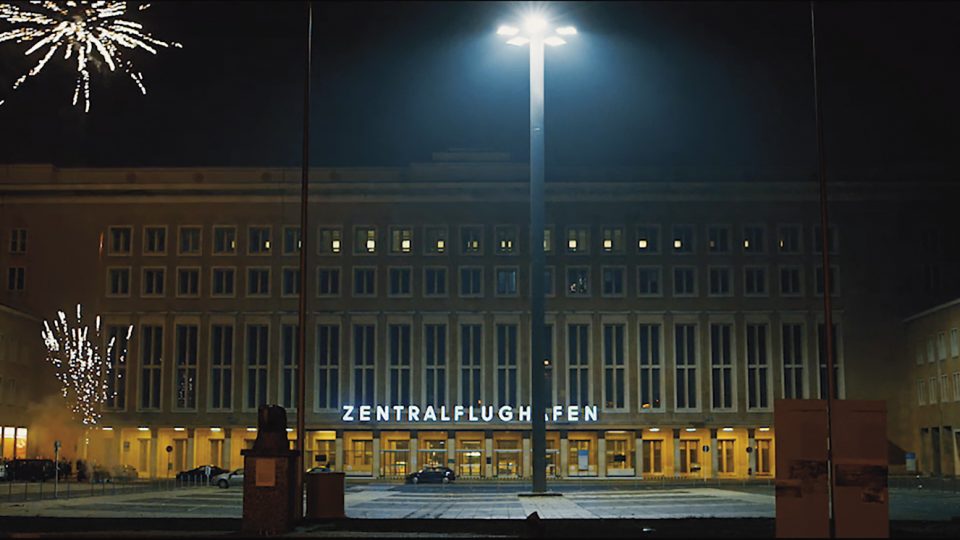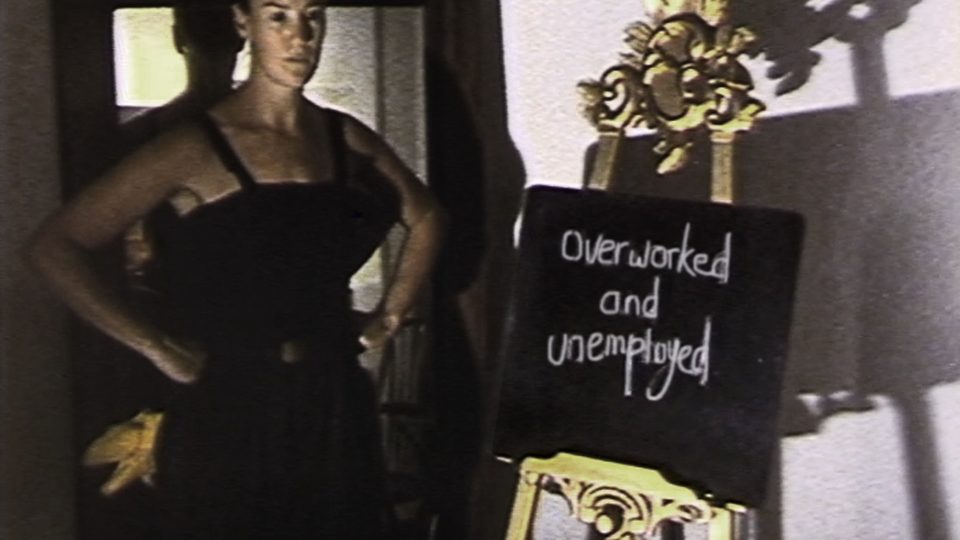
In an uncertain climate, in which Brazil’s LGBTQ community fears recriminations and further curtailment of rights, filmmaker Tavinho Teixeira talks about the importance of militancy of affect in cinema.
A magician of words, a provocateur, a Cinema Marginal heir – with films such as Batguano (2014) and Sol Alegria (2017), which premiered at the International Film Festival in Rotterdam (IFFR), Teixeira has quickly established himself as one of the most beloved, and most radical, national cult filmmakers. We spoke to Teixeira via Skype, after Sol Alegria won the Special Jury prize at the Olhar de Cinema International Film Festival in Curitiba.
Where did you get the idea for your film?
Both my previous film, Batguano (2014), and the latest one, Sol Alegria (2017), are based on my unpublished short stories. But whereas Batguano is close to the original, for Sol Alegria I kept almost nothing, except a few dialogues and the fact that the original had in it a gas station and a highway.
Basically, I had about ten pages about a family that travels in a convertible, stops at a gas station, and ends up having a huge row. Three generations inside one car. In the end, they all kill each other. Even the gas station explodes. The only survivor is the daughter. The whole premise is delirious.
The thematic link is the father who’s a church leader. You must keep in mind that these days certain church leaders spread hate speech using religious ideas. Though there’s also evangelicalism that allows gays to marry. Religion isn’t always poison.
Can you talk a bit about your background, and what films you watched and were inspired by in your young adulthood?
My affinity with language comes from my background in poetry and drama, having published some books. Cinema ended up being a way to join all my passions, though I never consciously said, “I’m going to make movies.” I acted in a number of films and then helped my daughter, who’s an actress, on one, and ended up writing a screenplay, where the crew and actors basically agreed to work with me.
I’m a sponge, so I soak in all the influences around me. My first great inspiration was naturally Brazilian cinema. I’m from the 1980s generation, a very nihilistic decade. When the military dictatorship ended in Brazil, I was twenty years old. At that time, as part of the middle class in Paraíba, I had no contact with artists, just a bunch of crazies experimenting with drugs, and so on. I didn’t fit in in school and was a bit lost. I basically didn’t end up studying anything. I worked with my father who had a meatpacking business and a ranch, so I worked with cattle.
At that time, I would pick up tons of VHS tapes to watch at my father’s ranch, while in the daytime I was planting watermelons, tomatoes, and so on. One of those films was Far Away So Close. Wim Wenders’s cinema was pure magic. There was also Hal Hartley, in the 1990s. Hartley’s dislocations, his estranged, odd characters that weren’t really heroic, but instead sad, resigned to their bizarre reality.
I think we are going through something similar, an acceptance of the bizarreness of the human condition, which is very sad. It’s not quite melancholy, but it does make me think of Chekhov. This sensation of living in the past, where the future and the present keep getting diluted. You end up with this profound sadness.
It makes sense that Brazilian cinema is your immediate reference. On one hand, Glauber Rocha and Júlio Bressane, whose works, like yours, are very theatrical. On the other, the radicalness – the nihilism – of Andrea Tonacci and his iconic Bang Bang.
When you think of that scene in my film, in which the mother screams, “My family! My family!” – I do see Tonacci’s Bang Bang. And, of course, it’s not possible to make films in Brazil without somehow referring to the Marginal Cinema. At least when you make the kinds of films I make. Marginal Cinema is a wellspring of freedom.
I didn’t film any particular scene thinking of an homage to it, but when you speak of Bang Bang’s open-road scene, it makes complete sense to see it as an influence. Even though I hadn’t actually seen the film before writing my screenplay!
That’s even better, isn’t it? Things are sort of “in the air.” What was your experience like premiering Sol Alegria in Rotterdam?
Rotterdam is an incredible festival. Some viewers could see how our film took on a different meaning in a Latin American context, considering our right-wing government. Though I guess some came away with an idea of “exoticism.” This kind of framing came up even in the film descriptions, which mentioned a “jungle,” and so on. I never think of my film as having anything to do with the jungle.
What matters to me is being able to capture a specific period, a zeitgeist. And the idea of rights, of what it means to be gay in today’s world. I’ll recall just one episode: When the makeup artist for Sol Alegria picked up the Special Jury prize that we got at the Olhar de Cinema [International Film Festival], in Curitiba, he went out to celebrate with friends, and got beaten up badly by the bar owner. He ended up in a hospital, only because he was open about his affections. This happens all the time with young gay people who don’t want to hide their love. Public space becomes a battleground – a battleground for affection. A militancy of affect.
I’m from a different decade, so I end up not being affective in public, knowing that I can be threatened. Yet this militancy is extremely important. Each decade you live in conditions you – your body – in a different way. You must then find the means to liberate yourself, and to act on your love.
“Militancy of affect” is in fact what I think Sol Alegria does and stands for. By contrast, your earlier film, Batguano, was much more nihilistic.
Yes, it was more sarcastic, with more dark humor, because we played with emblematic characters from comic books. I used Batman and Robin to talk about a love relationship. The characters’ situation has its humiliations, but they love, are joyful. We must find ways to be joyful, otherwise we’re stuck in utopia. We must open up – to the sun, so to speak – hence the title of my second film, Sol Alegria (Sun Happiness). Finding a path to happiness is part of a constant fight for existence.
Do you see contemporary Brazilian LGBTQ cinema as relatively new?
It was always there but without its proper space. In a way, I don’t even think that Sol Alegria is an entirely or just an LGBTQ film, but it’s great, and important, for it to claim that space. What we had in the past was primarily video art, or visual arts, in general. The powerful militancy of such Brazilian artists as Hélio Oiticica.
But there was no space for it in narrative cinema, that space had to be conquered.
That’s true. And cinema was dead in the 1990s – although it’s dangerous to say “dead,” considering we were always fighting for it – but the necessary support for it didn’t exist, had been done away with. There were videos, at times very homemade, artisanal, which weren’t always reaching an audience. Then we moved into the digital era – and also into a new era with some advances in LGBTQ rights.
At the same time, we continue to be marginal. And, in some way, I don’t want anyone to rob me of my marginality, of speaking from a marginalized position.
There is power in being marginal, in affirming our space. Not just in cinema, but existentially. We are always – all of us, gays, artists – living the marginal condition. It informs our worldview, our skepticism of what’s coming, the madness that surrounds us. I don’t recall another time in my life when the world was so overshadowed by the extreme right. When you think that leaders of rich countries call Latin Americans “animals.” The fact that this word is actually being uttered, without real repercussions, is madness.
When I say that Sol Alegria claims the LGBTQ space and, at the same time, its complexity extends beyond one area, it’s because I do show erotic gay scenes that are meant to be affirmative, but on the other hand, it’s also a family film. I deal in it with many of my own questions. This family is “inverted,” subversive, but not nihilistic. The circus is grotesque, funny, but also it’s a way of creating a possible family. In this sense, my film is pantheistic, pansexual, fluid, hedonistic. We focus on pleasure, on the idea of finding beauty in another person’s pleasure.
When you speak of creating a possible reality, I think of another Brazilian filmmaker, Adirley Quierós – the fact that you and Quierós, more than anyone else in Brazilian cinema, fight for a new social imaginary.
I love Adirley’s work, its sheer power, the speaking body he presents in Brazilian cinema, which, to me, is the most credible cinematic gesture we’ve had recently.
With my own film, I think we’ve lost the sensual contact, because of religion, shame, the notion that nudity, our bodies, are somehow “barbaric.” That’s the repressed reality we live in. If humanity were any different, our film would have been merely picturesque. Instead, it captures the truth: The current reality is the grotesque.
Sol Alegria will screen on July 28, 6pm, at the Museum of Moving Image (MoMI), with short film, Vando Vulgo Vedita, by Andreia Pires and Leonardo Mouramateus. Program curated by Ela Bittencourt, co-presented with Cinema Tropical. Complete program line-up: click here.

